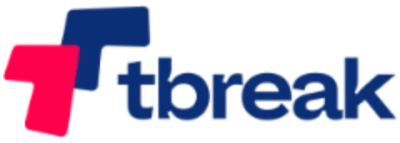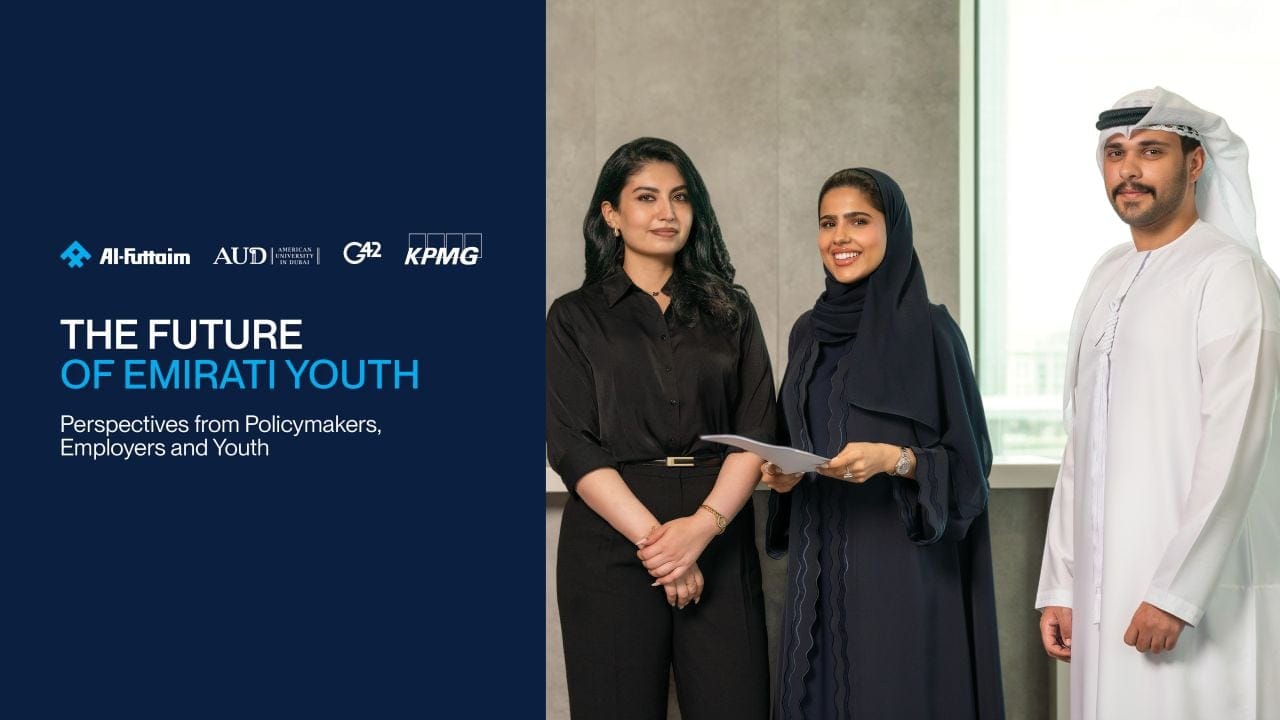- 53% of young Emiratis rate work‑life balance as a top employer criterion; 51% want a positive, supportive environment.
- Family drives career choices for 46%, highlighting strong cultural influence.
- Barriers include fierce competition for entry‑level roles (33%), lack of experience (28%), and limited access to training (23%) and mentorship (21%).
- Pension disparities pull talent toward government roles; 48% see public schemes as more attractive.
- The paper calls for quality‑based Emiratisation, better managers, earlier industry exposure and pension harmonisation.
Al‑Futtaim, in partnership with American University in Dubai (AUD), KPMG Middle East, and G42, has published a white paper on what young Emiratis actually want from work. The short version: balance, culture and growth beat hollow incentives.
The research, based on a survey of 500+ Emiratis aged 18–25, also surfaces familiar pain points. Entry‑level bottlenecks, patchy training, and pensions that make the private sector a tougher sell. Below is what matters, why it matters, and what UAE employers can do right now. Full report: Al‑Futtaim white paper and the PDF.
What young Emiratis want from work
Workplaces that respect time and people, not just targets. That is the headline finding.
- Work‑life balance ranks “extremely important” for 53%
- Positive, supportive culture matters to 51%
- Creativity and recognition define a “great” workplace for 82%
- Personal growth and ethics score 81% each; teamwork 79%
Young Emiratis are not rejecting ambition. They are rejecting burnout and performative perks. The data points to basic but often neglected hygiene factors: sane hours, decent managers, and clear growth paths.
For employers, that means designing roles with predictable workloads, visible progression and actual recognition. For wider context on the skills wave, see our coverage of the UAE’s training push: UAE “AI for All” skills programme and AWS + e& training 30,000 in AI.
Who shapes their career choices?
Family still carries weight. That matters for how you hire and retain.
- Parents and family influence 46% of career decisions
- Social expectations shape public vs private sector choices
- Role models and mentors remain underused levers
Hiring campaigns that ignore family influence miss the mark. Bring parents into the conversation with transparent benefits comparisons, especially around pensions and stability. Spotlight credible Emirati role models doing meaningful private‑sector work. G42’s infrastructure programmes create visible technical pathways beyond government IT. See our coverage: G42’s 1GW “Stargate UAE” build.
The skills and access gap at the entry level
Awareness isn’t the same as readiness. The survey shows a mismatch between interest in AI and practical skills.
- 42% are thinking about AI’s impact
- Only 33% cite data literacy as a success factor
- Common blockers: high competition (33%), lack of experience (28%), limited training (23%), weak mentorship (21%)
This is fixable. Tie internships to real outcomes, not coffee runs. Fund short, stackable certificates that slot into degree paths. Pair every graduate hire with a mentor for the first year and measure that programme like any other KPI. There are local models to copy that reduce the “no experience” trap by creating job‑ready signals: du + Huawei skills programme and du + Cisco graduate certifications.
The pension problem and the private‑sector pull
Compensation is more than salary. Pensions shape lifetime outcomes, and young Emiratis know it.
- Over half consider pension “very important”
- 48% see government pension schemes as more attractive
- 36% would consider working abroad without competitive offers at home
If private‑sector pensions lag, the talent equation will always tilt toward the public sector. Employers should quantify the gap in dirhams and make it visible. Where policy allows, use top‑ups, savings matches, and financial education as part of total reward. The paper also argues for harmonisation across sectors. That is the lever most likely to change long‑term behaviour at scale.
From quotas to quality: what to change now
The white paper urges a shift from counting hires to building capability. That means better managers and clearer pathways.
- Evolve Emiratisation frameworks from quantity to quality
- Embed early industry exposure into education
- Train managers as coaches and talent developers
- Invest in visible national role models across tech and business
- Push for systemic fixes like pension harmonisation
In practice, start with pilots you can measure. Define skills ladders for priority roles. Tie promotions to coaching outcomes, not tenure. Fund capstone projects with real companies, not hypothetical case studies. And report results. The UAE already moves fast on digital skills and adoption, as we’ve reported. For context on adoption, read: UAE leads in AI usage.
FAQ
What is the source of the findings?
A white paper by Al‑Futtaim with AUD, KPMG Middle East and G42. It combines a 500+ respondent survey of Emiratis aged 18–25 with a youth circle and an industry roundtable. Full details and the PDF are on Al‑Futtaim’s site.
Why are pensions such a big deal for private‑sector hiring?
Because pensions drive long‑term financial security. If private schemes are weaker than public ones, rational graduates pick safer returns. That skews the pipeline unless employers or policy fix the gap.
Is AI the top skill Emiratis need right now?
AI literacy helps, but the gap is broader: data skills, problem‑solving, and applied experience. Short, recognised certificates plus mentored projects bridge the fastest. See local programmes linked above.
What can SMEs do with smaller budgets?
Offer flexibility and growth. Partner on funded training, run structured internships, and assign real mentors. Publish clear career paths and keep workloads humane. Culture beats beanbags.
How should HR change its playbook?
Hire managers for coaching ability, not only delivery. Measure onboarding, mentoring, and progression as hard KPIs. Replace generic grad schemes with role‑specific skill routes that lead to certifications and promotions.
Subscribe to our newsletter to get the latest updates and news















Member discussion